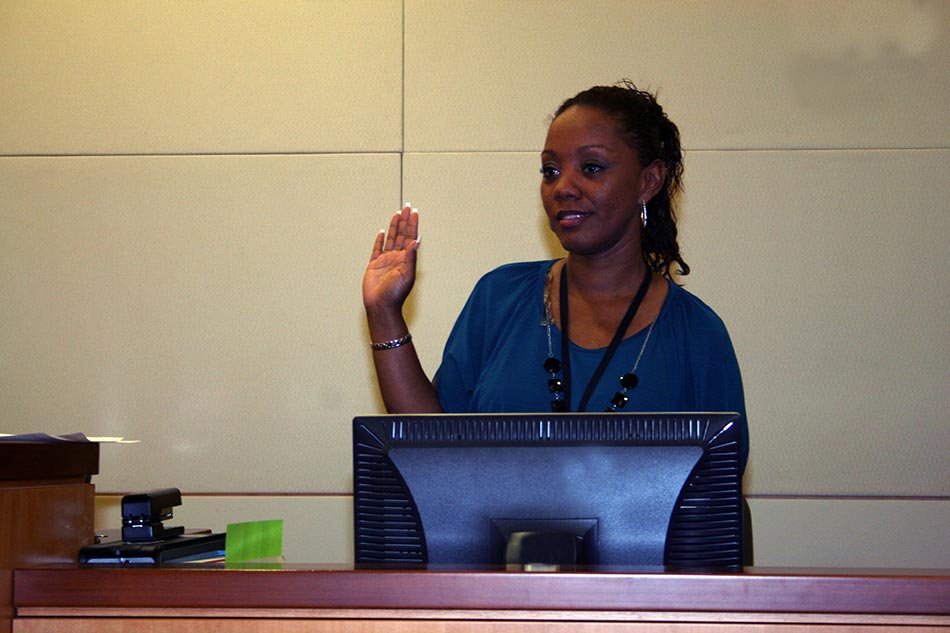IN THIS PHOTO: Tysia N., Clerk of Court
Think About Your Actions In Court
The court takes hearings seriously, meaning a juvenile needs to do so as well. Here are some of my suggestions for how to prepare for a hearing in my court:
- Come to court before the hearing is scheduled to start. To see the judge at a hearing, a juvenile will need to go to the courthouse; pass through court security; go to the right courtroom; find the right attorney and do other things, all before the hearing is scheduled to start. All of that can take time. If the juvenile is late, the court may either reschedule the hearing for another day (requiring the juvenile to come to court another time) or issue a warrant directing the police to arrest the juvenile and bring the juvenile to court. Either of those options are not very attractive. So, the juvenile should come to court before the hearing is scheduled to start.
- Call the court if the juvenile cannot come to court before the hearing is scheduled to start. If there is some really, really good reason why a juvenile cannot come to a hearing on time, the juvenile should contact the court as soon as possible. Calling the court to explain the situation might result in the court resetting the hearing for another day. If, however, the juvenile simply fails to show up without having contacted the court, the court may issue a warrant directing the police to arrest the juvenile and bring the juvenile to court.
- Think about what to wear. What a juvenile wears will send a message, either positive or negative. A juvenile doesn't have to wear fancy or formal clothes in my courtroom. A juvenile should, however, wear clothes at least as nice as the nicer clothes that the juvenile wears to school.
- Think about what actions in court. People in the courtroom will be looking at how a juvenile acts. It is the juvenile's case and I hope the juvenile is interested in what is going on and what happens. Sitting up straight and paying close attention is a good idea. Slouching, looking around and not paying attention is not a good idea.
- Don't chew gum in court.
- Don't wear a hat in court.
- Don't curse in court.
- Don't be disrespectful to anyone in court.
- Use words when speaking. Head nods, "yeahs" and "um-hums" don't communicate very clearly and don't make a very good record of what you are trying to say, which may be very important. For these same reasons, don't use slang when you are in court.


